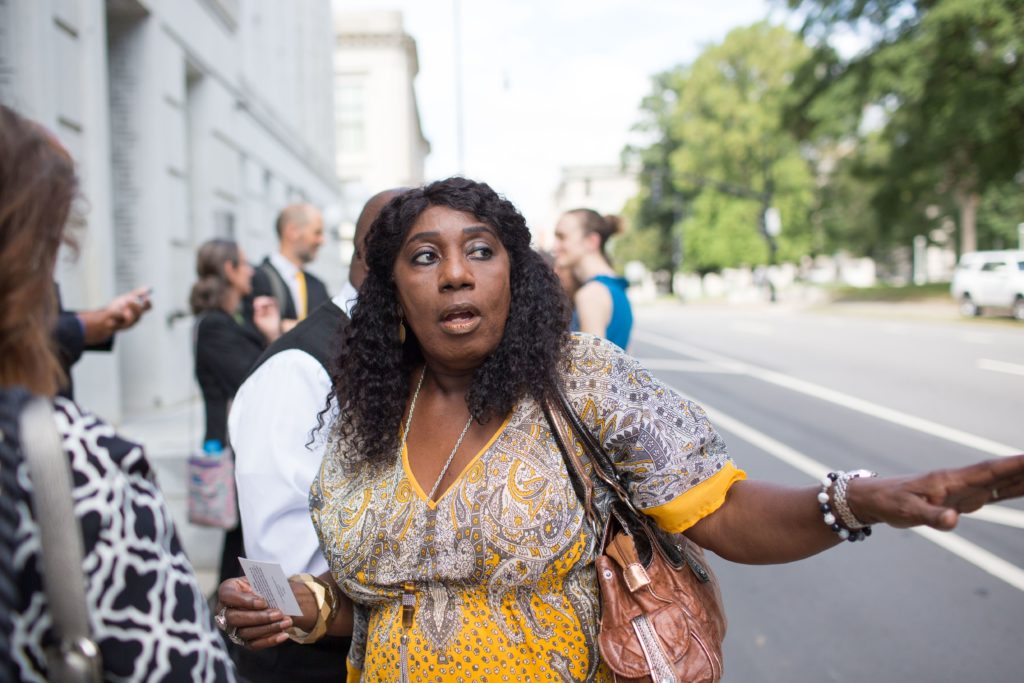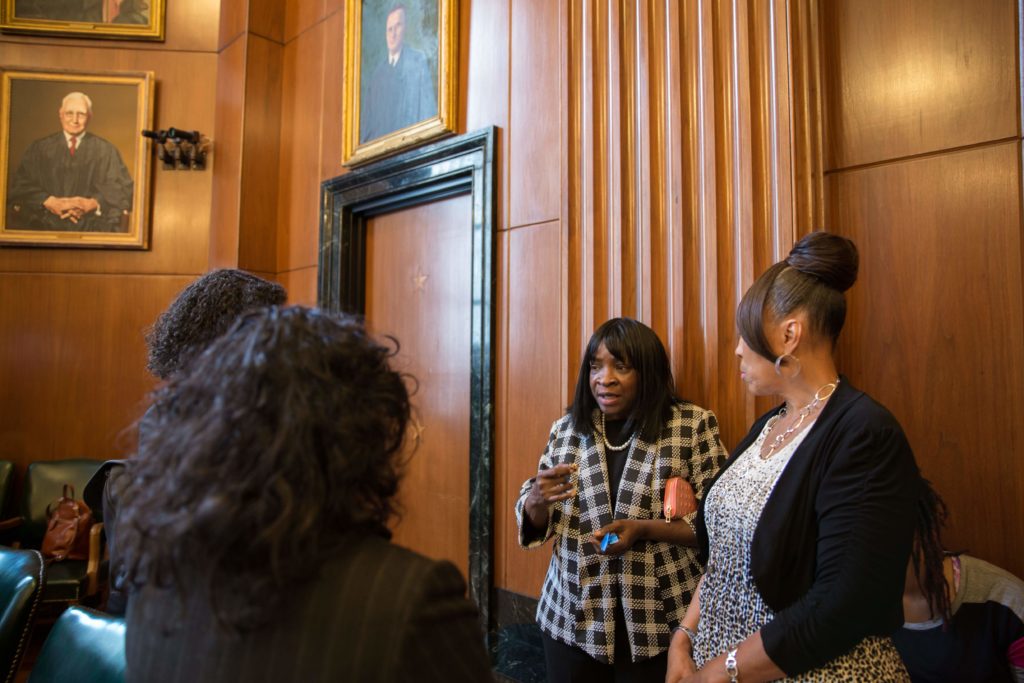Four clients represented by a team of litigators, including several CDPL attorneys, have now been resentenced to life without parole after the N.C. Supreme Court ruled that they were unconstitutionally returned to death row despite proving that racism polluted their trials and people of color were systematically excluded from the juries that sentenced them to death.
Christina Walters, Quintel Augustine, Marcus Robinson, and Tilmon Golphin were removed from death row thanks to successful claims filed under the Racial Justice Act, a 2009 law that allowed people on death row to bring forward evidence that race played a role in their trials in sentences.
The Racial Justice Act led to a statewide study showing that, in capital trials, prosecutors dismissed Black citizens at 2.5 times the rate they excluded whites. This disparity was driven entirely by race and could not be attributed to any other factor, such as death penalty views. It also found that crimes with white victims were twice as likely to be punished with death.
Walters, Augustine, Robinson, and Golphin were the only four death row prisoners to have Racial Justice Act hearings before the law was repealed in 2013. All four won their cases, using the study to show a pattern of race discrimination in North Carolina capital cases. They also unearthed prosecutors’ notes referring to jurors with denigrating terms like “blk wino,” and training materials showing that their prosecutors had been instructed on how to invent “race-neutral” reasons to justify their strikes of Black jurors.
In 2012, Cumberland County Superior Court Judge Gregory Weeks resentenced all four to life without parole after finding a “wealth of evidence” that systemic exclusion of Black jurors had tainted their death sentences. However, after the repeal of the Racial Justice Act, the N.C. Supreme Court overturned Weeks’ ruling on procedural grounds, saying the hearings should have been held separately rather than jointly and that prosecutors should have had more time to prepare their case, even though the trial court had already given the state two continuances. The court ordered new RJA hearings for the four defendants, and in a legally questionable move, the N.C. Department of Public Safety quickly returned them to death row.
Now, the Supreme Court has ruled that the reinstatement of their death sentences was unconstitutional and has restored life sentences for all four. The decision was based on the state constitution and cannot be appealed.
In a separate ruling, the court also said that all North Carolina death row prisoners who filed RJA claims before the law’s 2013 repeal are entitled to hearings where they can present evidence that prosecutors purposefully excluded African American citizens from their juries and that racism tainted their trials. CDPL continues to litigate those cases.


